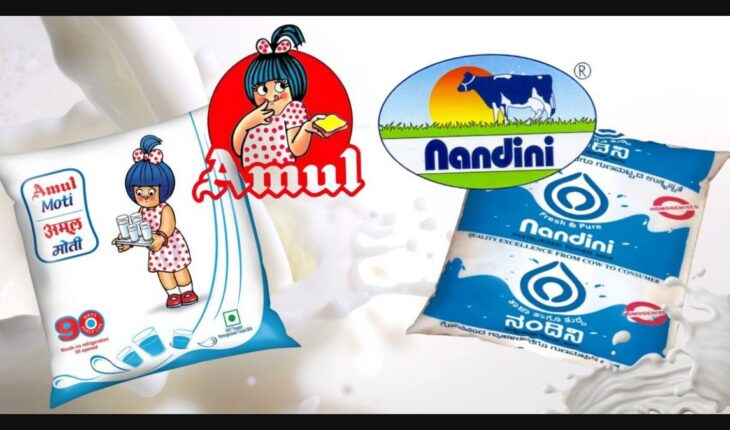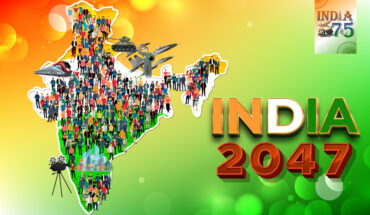A single tweet from Gujarat Cooperative Milk Marketing Federation stirred the pot of milk in poll-bound Karnataka when it announced that the milk and curd of the Amul brand will be supplied soon in Bangalore.

In the midst of poll preparations in Karnataka, the controversy of Amul and Nandini milk brands created a stir raising the temperature of the campaigning. As soon as Amul announced the online delivery of its milk in Bangalore, opposition parties including the Congress and Janata Dal (S) accused the ruling BJP in the state that the Gujarat-based Amul was challenging Karnataka’s very own Nandini brand. Opposition parties also feared that the Rs 21,000-crore Nandini brand could be merged with Amul. An announcement made on social media heated up the politics of Karnataka. Actually, Union Home Minister Amit Shah in December observed that cooperation between the umbrella brands of Gujarat Cooperative Milk Marketing Federation and Karnataka Milk Federation could do wonders.
The truth is that Gujarat Cooperative Milk Marketing Federation’s Amul brand has been supplying pouch milk and fresh products in two districts of Karnataka – Hubballi and Belgaum since 2015. Even the Amul ice cream is prepared with Nandini milk. Its intention was to make Amul milk and curd available only through e-commerce in Bangalore. Moreover, Amul milk is costlier than Karnataka’s homegrown Nandini brand, so the question of competition between the two does not arise. The Government of Karnataka provides subsidies to dairy farmers for Nandini milk, hence the rate of Nandini milk is Rs 39 per liter in the state, while Amul milk is sold at Rs 54 per liter. The milk controversy forced Amul managing director Jayen Mehta to clarify that ‘there is no question of competition’ between Amul and Nandini. However, this kind of controversy can be detrimental to many other desi brands that have pan-India aspirations. Every brand and company should be free to market and distribute its products anywhere in the country.
India is the largest milk producer in the world with a production of 220.78 million tonnes in 2021-22. The country is contributing a quarter of global milk production. It is a 51% growth when compared to 2014-15. The source of the data is the Ministry of Fisheries, Animal Husbandry and Dairying, Government of India. But recently there has been a slight decrease in milk production. The share of milk cooperatives and private players in the milk market is expected to reach 54% by 2026. Dairying is often the primary source of income for many landless families and marginal farmers. Therefore, it is in their interest that successful brands like Amul and Nandini buy and sell in the markets. Dragging milk into politics will only harm the farmers.
The Indian dairy industry is facing several challenges. The average milk production per animal in India is relatively low as compared to other countries. Inadequate nutrition, deficiencies in breeding practices, and lack of modern techniques can be some of the primary reasons behind this. The lack of proper infrastructure for milk collection, processing, and distribution affects the quality of milk. This often results in milk spoilage, weakened supply chains, and increased costs for farmers and consumers. The Indian dairy industry is predominantly unorganized, consisting mostly of small-scale farmers. This makes marketing and branding of dairy products difficult. Climate change is a new concern, which can affect the health and productivity of livestock. The lumpy disease in cows also impacted milk production to a great extent in the northern states of India during the second half of the previous year.
NarvijayYadav is a senior Journalist & Columnist. Views are personal.
Twitter @NarvijayYadav






